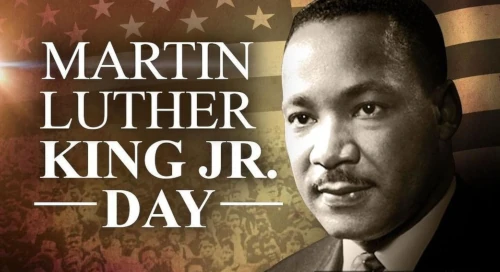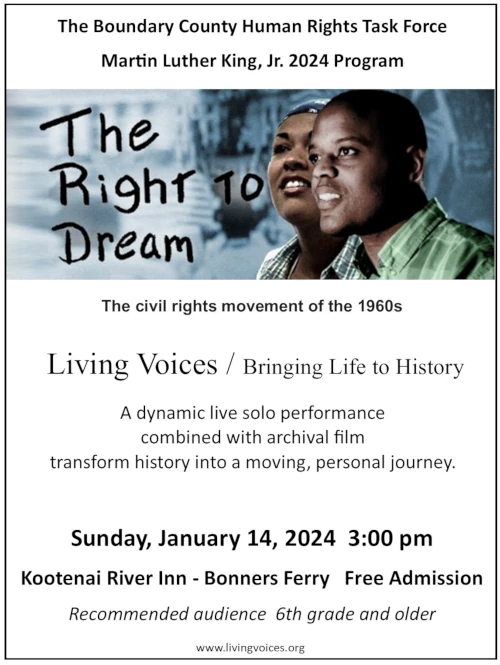 What’s in a Name?
What’s in a Name?
• May 3, 1963. 700 Black children marched peacefully in Birmingham, Alabama to protest racial segregation and were met with police brutality that shocked the country and the world. Public outrage was a catalyst that spurred major steps for civil rights.
• June 11, 1963. President John F. Kennedy proposed a Civil Rights Act in a nationally televised address at the urging of the civil rights leader, Martin Luther King, Jr. Five months later, President Kennedy was assassinated while the bill was stalled in Congress.
• August 28, 1963. Dr. Martin Luther King, Jr. delivered his famous “I have a dream” speech from the Lincoln Memorial at the March on Washington to about 250,000 people gathered to protest racial discrimination and encourage the passage of the Civil Rights Act that was before Congress.
• July 2, 1964. The Civil Rights Act was signed into law by President Johnson followed by years of campaigns and marches for freedom and equality.
• April 4, 1968. Martin Luther King, Jr. was assassinated. Four days later, the first legislation was introduced to make King’s birthday a federal holiday.
In 1969, The King Center in Atlanta began its annual celebration of King’s birthday and called for nationwide ceremonies. While support for a national MLK, Jr. holiday grew and several states enacted their own, it took 15 years until President Reagan signed it into law as a federal holiday in 1983 after receiving six million signatures in favor. Another three years passed until it was finally observed in 1986.
Idaho’s Senate voted in favor of a state paid MLK, Jr. holiday 32-9, but it failed in the House in 1986, and again in 1987 and 1989.
 Opponents did not believe Idaho, one of the whitest states in the country, had a “black problem.” However, Idaho did have a white supremacist problem, as the Aryan Nation battered Idaho’s image. Many people hoped enacting an MLK Day would help change this perception.
Opponents did not believe Idaho, one of the whitest states in the country, had a “black problem.” However, Idaho did have a white supremacist problem, as the Aryan Nation battered Idaho’s image. Many people hoped enacting an MLK Day would help change this perception.
Even without an official King Day, local celebrations grew throughout the state. Coeur d’Alene’s first MLK celebration was led by Father Bill Wassmuth, a founder of the Kootenai County Task Force on Human Relations, who believed visible support for human rights would challenge the growth of the Aryan Nation.
Wassmuth organized protests against the Aryans and was nearly killed when his home was bombed.
On King Day in 1989, Richard Butler announced an upcoming skinhead training conference at his compound in northern Idaho and a celebration of Hitler’s 100th birthday. In response, thousands across Idaho joined rallies, marches, ceremonies, and faith services to celebrate human rights. A statewide civil rights movement was kindled, adding pressure on Idaho legislators to adopt a paid state MLK holiday.
Governor Cecil Andrus declared the week of April 17, 1989, Idaho Human Rights Week and called for adopting an MLK, Jr. Day.
Four bills were introduced. Public testimony was overwhelmingly in favor. Father Wassmuth said, “We need this day so that we will not grow apathetic in our struggle against supremacist groups.”
A handful of Idaho legislators were still opposed until a compromise was made to rename the holiday to Martin Luther King, Jr. – Idaho Human Rights Day, not to be confused with Human Rights Day celebrated on December 10th since 1948.
In 1990, Idaho was the 47th state to recognize MLK Day as a state holiday. Idaho wasn’t alone in “bundling” the holiday name. Until 2000, Virginia named the holiday “Lee-Jackson-King Day” and Utah dropped King’s name altogether. Both states renamed the holiday “Martin Luther King, Jr. Day.”
To this day, Alabama and Mississippi celebrate “King-Lee Day” honoring King along with the confederate General Robert E. Lee. Bundling the holidays is a form of resistance to racial justice in America.
With the rise of extremist ideologies and a resurgence of the Aryan dream in northern Idaho, perhaps it is time for Idaho to “unbundle” and fully honor the civics rights leader Dr. Martin Luther King, Jr.
To learn more and celebrate Dr. King’s legacy, the community is invited to a live performance of “The Right to Dream” by Living Voices at 3 p.m. Sunday, January 14, at the Kootenai River Inn, recommended for an audience sixth grade and older.
